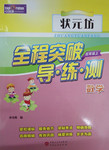题目内容
One morning,I was waiting at the bus stop,worried about 1. (be) late for school.
There were many people waiting at the bus stop,2. some of them looked very anxious and 3. (disappoint) . When the bus finally came,we all hurried on board. I got a place next 4. the win dow,so I had a good view of the sidewalk. A boy on a bike 5. (catch) my attention. He was riding beside the bus and waving his arms. I heard a passenger behind me shouting to the driver,but he refused 6. (stop) un til we reached the next stop. Still,the boy kept 7. (ride) . He was carrying something over his shoulder and shouting. Finally,when we came to the next stop,the boy ran up to the door of the bus. I heard an excited conversation. Then the driver stood up and asked, “8. any one lose a suitcase at the last stop?” A woman on the bus shouted, “Oh,dear!It’s 9. (I ).” She pushed her way to the driver and took the suitcase thankfully. Everyone on the bus began talking about what the boy had done,and the crowd of strangers 10. (sudden) became friendly to one another.
1. being 2. and 3. disappointed 4. to 5. caught 6. to stop 7. riding 8. Did 9. me/mine 10. suddenly

 状元坊全程突破导练测系列答案
状元坊全程突破导练测系列答案 直通贵州名校周测月考直通名校系列答案
直通贵州名校周测月考直通名校系列答案